Industry Insights
Industry Insights
Our team frequently add articles to our blog, highlighting issues that we feel passionate about which are affecting the Grocery sector. Please register your interest at the bottom of this page if you'd like to be added to our database and stay informed about updates that we think you'll find valuable...
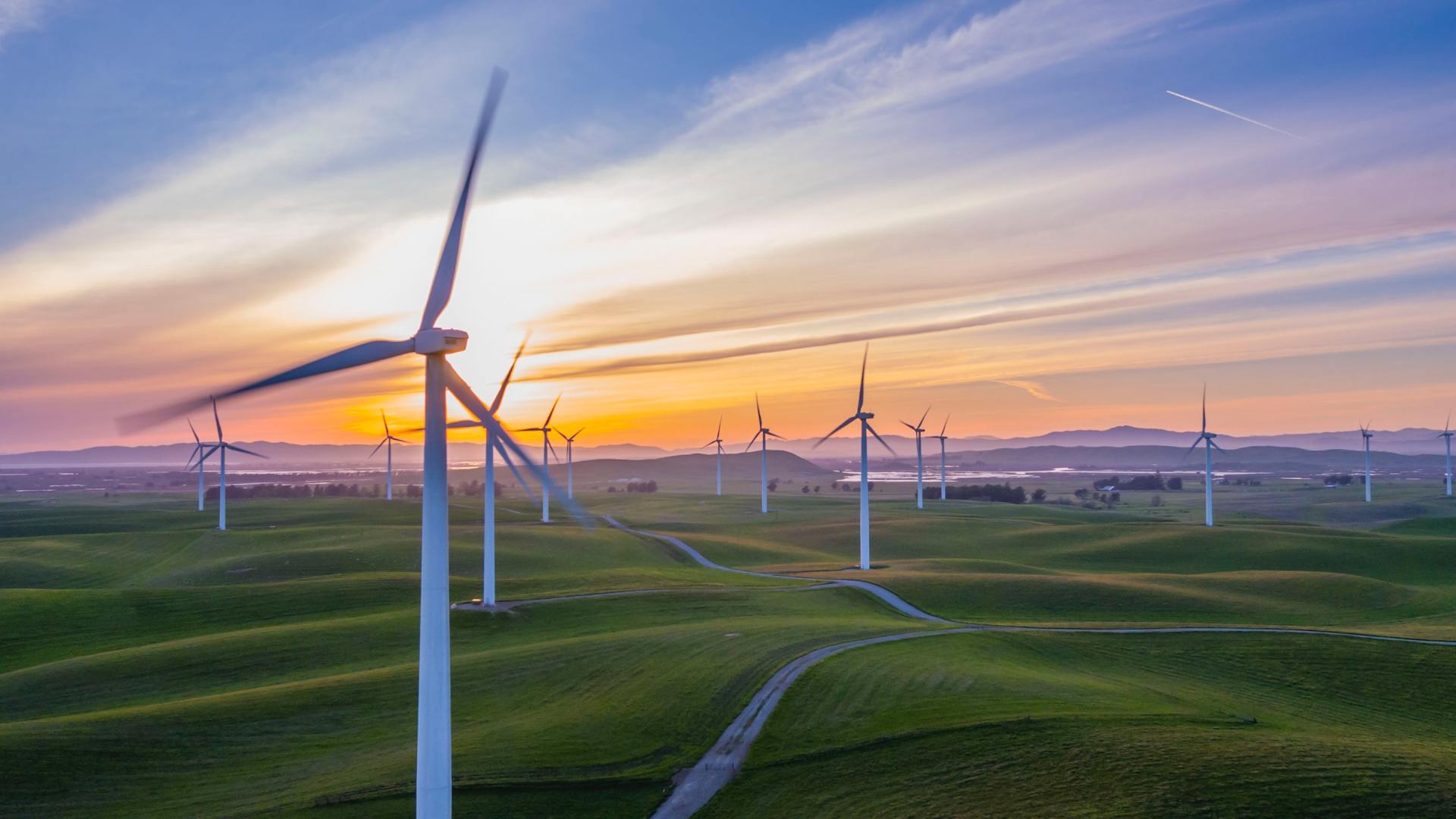
by Rachael McMahon
•
30 March 2021
Living Sustainably- The Facts In 2019, the Intergovernmental Panel on Climate Change (IPCC) , reported how a temperature rise of 1.5 degrees Celsius will negatively impact the world. Supporting the beef industry contributes to climate change ; the production of meat, dairy, and immense water usage to grow food for the animals are all factors that lead to a high carbon footprint. Making improvements on food production, transforming eating habits and reducing food waste can help fight climate change. These adjustments need to come from governments and societies soon, as the impacts on the planet will soon be irreversible. The pandemic and time in lockdown have caused many to rethink their relationship with food. Restrictions of movement and fear caused food security worries and fuelled a new passion for home cooking. Lockdown has even influenced people to increase their vegetable consumption. The Next Generation’s Priorities In order to understand the impacts of the pandemic, Strategy& PwC surveyed a total of 2,000 adults about their ever-changing eating habits and shopping behaviours. About 15% (one in six shoppers) stated that health was the most important driver for their diet change, followed by ethics, sustainability, and animals. 22% of Generation Z and Millennials (18–34 years) were more likely to change their habits for environmental and ethical reasons, in comparison to only 10% of participants aged 55 and over. As younger generations are changing their habits, the retail industry needs to adapt to new consumer and environmental demands. Carbon Emissions Reduction The social economic disruption, lockdowns, and work from home situations have led to global greenhouse gas emission reduction of nearly 2.4 billion , a 7% drop from 2019. While these emissions are predicted to rebound in 2021, governments are encouraged to prioritise policies that tackle climate change in their upcoming economic recovery plans. More adults grew conscious about the environment in lockdown, as seen in a study commissioned by the global hygiene and health company, Essity . During lockdown, 81% of adults stated that they worried more about the planet’s future. A further 50% of these adults have converted these concerns into actions by buying less plastic, recycling more often, and taking shorter showers. Going Vegan and Buying Sustainable Products The Veganuary concept started in 2014 in York, encouraging people to follow a vegan lifestyle for the month of January. The number of participants has doubled since 2019; 500,000 people signed up to participate in Veganuary this year, with 125,000 participants from the UK . Iceland was one of the British supermarkets to participate in this challenge, promoting the many benefits of a plant-based diet. Awareness surrounding health and ethics has increased during the COVID-19 crisis, as restrictions do not allow people to travel long distances to shop. People have realised the importance of health, exercise and well-being. A survey of 3,000 shoppers conducted in April 2020 found that 64% of consumers focused more on limiting food waste. Half of the consumers surveyed said they were opting for healthier options, with another 45% stating that they are conscious about purchasing items that are more sustainable. Iceland are Doing IT Right Sustainability has become a major driver in consumers’ decision-making processes. Supermarkets and brands have recognised the acceleration of environmental awareness and are working to meet their consumers’ needs and expectations. The Doing it Right campaign is at the heart of sustainability. Iceland supports the UN’s Sustainable Development Goals (SDG), following the five principles: • Caring for the planet by enhancing the global environment through leading initiatives • Supporting the communities by paying taxes and through their Charitable Foundation • Selling quality food at a great value • Working with suppliers to build mutually beneficial long-term partnerships • Valuing our people as family business Iceland’s focus is to wipe out poverty, fight inequality and tackle climate change in the run-up to 2030. Iceland’s own label products have not contained palm oil since 2019. They have reduced their plastic packaging and plans to remove plastic packaging from their own label completely by 2023. Adding to all Iceland’s commitment of being more sustainable, Managing Director Richard Walker has written a book on how to help other businesses become more sustainable. The book ‘The Green Grocer: one man’s manifesto for corporate activism’, discusses how it is possible to be successful in sustainable initiatives while being pragmatic about profit and staying committed to customers and employees. The Iceland Media team provides Iceland Suppliers with a full range of media opportunities that influence Iceland customers, and help brands grow by drawing attention to their environmental and socially responsible products and brand values. Interested in booking a campaign in Iceland stores or online? Request a proposal or send an email to hello@icelandmedia.co.uk .

by Iceland
•
21 March 2021
Richard Walker, Managing Director of Iceland Foods will share his unique approach to leading a sustainable business agenda in a new book, which will be published in April. The Green Grocer sets out Richard’s learnings since he embarked on Iceland’s ‘Doing it Right’ plan in 2017 and his practical advice for business of all sizes that want to make a positive difference.
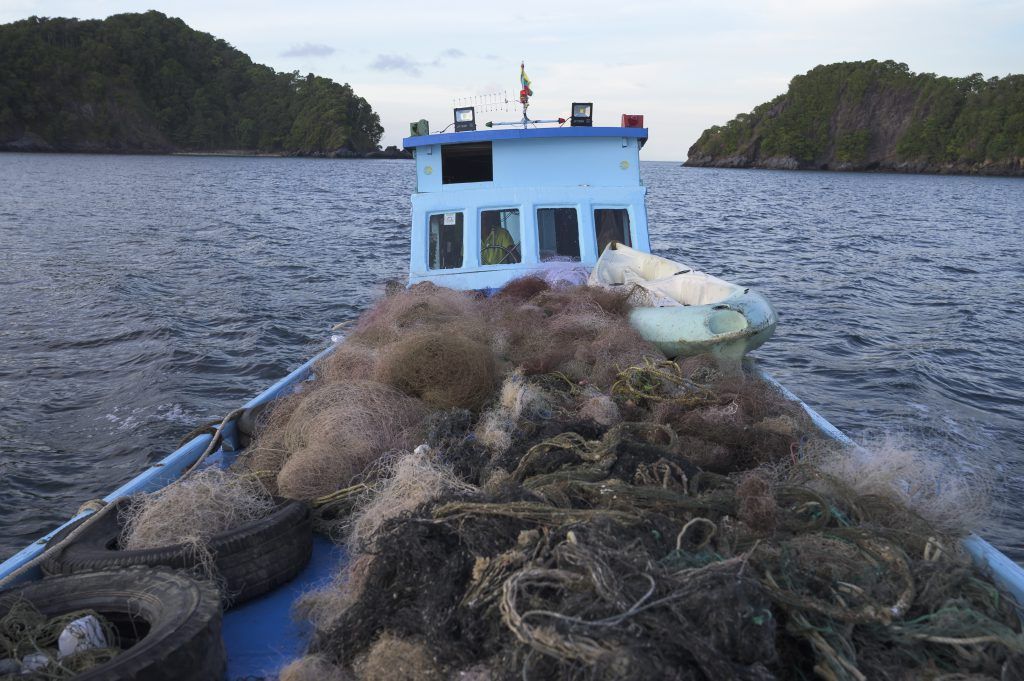
by Iceland
•
19 March 2021
As part of its membership, Iceland will collaborate with other GGGI members to help achieve the initiative’s goals of improving the health of marine ecosystems, safeguarding human health and livelihoods and protecting marine animals from harm. The GGGI has a holistic approach, working cross-sector with the fishing industry, private sector, NGOs, academia and governments. Projects involve training people to safely recover ghost gear from waters, educating fishers on recycling of nets and other gear, capacity building work to improve the understanding of best management practices of fishing gear, data collection and recording to understand and mitigate the problem. Iceland will also introduce GGGI to its Fish and Seafood suppliers via its Plastic Free Working Group in April, giving them the opportunity to learn more about the initiative and become members themselves. Richard Walker, Managing Director of Iceland, said: “Ensuring our oceans remain an environment where marine life can live and thrive is absolutely imperative. We are proud to become a member of the Global Ghost Gear Initiative and help tackle the problem of ghost fishing gear. Reducing pollution is an issue that Iceland has been addressing since we made our industry-leading plastics commitment and joining the GGGI is another step forward in our efforts to reduce marine pollution.” GGGI was founded by non-profit World Animal Protection in 2015 in a bid to help remove some of the millions of abandoned fishing nets, pots and lines that get left in the sea each year. Since 2019, the GGGI has been hosted under Ocean Conservancy’s Trash Free Seas® program. For further information visit https://www.ghostgear.org/

by Iceland
•
18 March 2021
The appointment follows three years of collaborative environmental campaign work between SAS and the Iceland Foods Charitable Foundation. Together they founded the Plastic Free Awards, which celebrate the heroes of the plastic pollution movement, and their partnership has already supported beach cleans across the UK. Hugo Tagholm, CEO of Surfers Against Sewage, said: “There is huge momentum to be gained from activists and businesses talking to each other. It creates pragmatic opportunities to reach consumers and to shape policy by understanding what is possible and presenting workable solutions to government. Therefore, we are delighted to welcome Richard Walker to SAS as Chair of the Board of Trustees and welcome his passion and drive for change. Positive, disruptive leadership is now the only way forward and in collaborating, we create a unique opportunity to drive the change we all want to see, with one voice.” If the existing ambitions of the 2030 climate and energy framework are to be met, both Tagholm and Walker share the view that corporates and charities urgently need to drive change in a post-Covid world. Walker said: “What makes SAS so special to me is the absolute authenticity of the charity as the voice of the ocean – bringing together people whose commitment to environmental protection for the planet’s waters is rooted in their enjoyment of surfing and the understanding of the sea that brings. As a keen surfer who has a deep-rooted love of the ocean, I am honoured and delighted to have been invited to take on the role and thank the outgoing Chair, Alex Wade, for the great work he has done over the last three years. Becoming a charity trustee is a great way for business leaders show commitment to prevent the further unravelling of the world we treasure. I would especially encourage younger leaders to consider how they can drive real change in this way.” As Chair, Richard aims to push forward and publicise the work of SAS, including increasing beach, river and street cleans, lobbying to ensure there are more marine protected areas, campaigning for rewilding of oceans to create healthy and vibrant ecosystems and hosting the second, UK Plastic Free Awards.
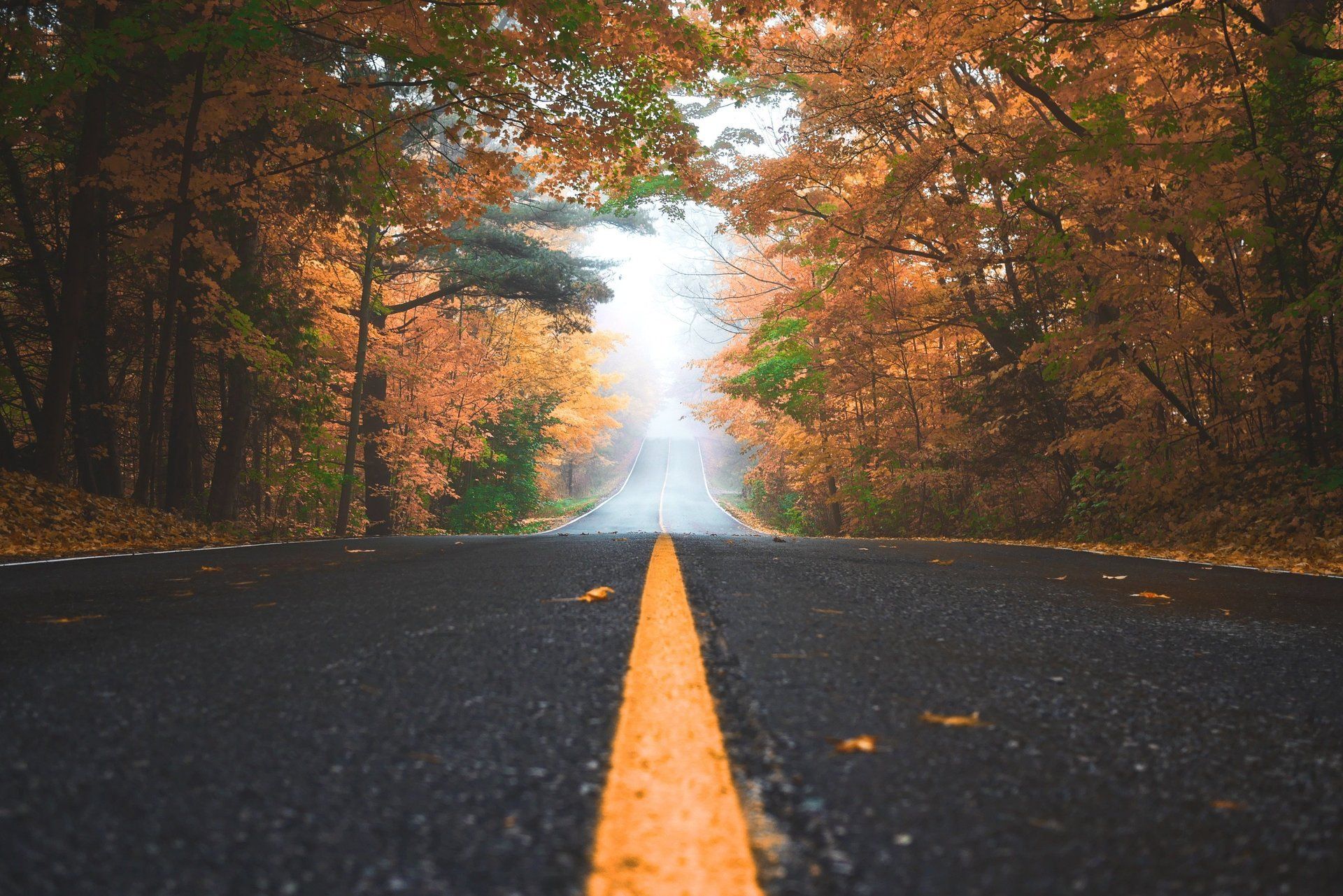
by Tom Cowie
•
10 March 2021
Travel Trends and Predictions for 2021 The number of people who are struggling financially has increased in the last year as workers were put on furlough, had their working hours reduced, and some even faced unemployment. Even if countries opened up for international travel this summer, it would be unaffordable for many. People have become more conscious about their health and aware of the importance of getting vaccinated. However, there are no indications that they will be delivered throughout the population by the time the summer season arrives this year making international travel a risky choice. The tourism industry is not expected to return to pre-COVID levels at the end of 2021, even if everyone was fully vaccinated. VisitBritain predicts that people will spend £61.7bn on domestic tourism this year. Even though it only equates to 67% of 2019’s numbers, it is still 79% higher than it was in 2020. It is expected that people will spend £18bn on domestic overnight tourism, an increase of 82% in comparison to 2020. £44.6bn will be spent on leisure day trips, outgrowing 2020’s numbers by 82%. Last minute bookings have the potential to become a trend. Living with uncertainty has made it difficult to plan, risking cancellations and losing money in the process. Those who are working from home may crave a ‘ Flexication ’, were workers want a change of scenery while working; staying in hotel rooms or B&B as part of their working week. The Rise of Staycations Travel within the UK is not allowed, but accommodation without shared facilities are allowed to reopen on the 12th of April. By the 17th of May, hotels and B&B’s can reopen, depending on case numbers and vaccination distribution. B&B Since a revised regional tier system was put into place in November, HolidayCottages.co.uk saw their demand increase within 3 weeks by more than 250% year-on-year during December and the Christmas break. Caravan parks and Camping According to the UK Caravan and Camping Alliance , up to £9.3bn is generated by visitors each year, adding to the UK economy a gross value of £5.3bn . Camping is deemed safer, being one of very few sectors that improved due to the garden camping trend. Camping retailer OLPRO reported a 32% increase in website traffic, 53% increase in online orders and 13% increase in total revenue. Van Conversions With travel restrictions in place for most of 2020 and under government’s guidance to avoid travel outside the country, Campervans and vans for DIY conversion sales have skyrocketed. Campervans give the feeling of freedom to travel while having a home, with a feeling of safety as one can easily socially distance themselves in remote places within the country. Campervans increase travel flexibility and are a good investment for those who travel often. Volkswagen vans sold particularly well as they do not devaluate that quickly. Bath VW Campers reported a staggering 100% increase in sales. New car sales may have decreased, but the camper van conversion industry has seen a rise in demand and sales . The campervan community continues to grow across the world, with 9.3 million Instagram posts tagged with the hashtag '#vanlife' as of March 2021. In addition, Auto Trader conducted a survey with 2,000 website users and 40% stated that they were planning a staycation, leading to predictions that caravan holidays could match hotel stays this year. What will summer 2021 look like? Consumer habits have changed drastically in the last year. During the summer, many were interested in eating lighter and healthier. Barbeques looked very different in 2020 with the addition of good quality meat and vegetables. Summer trends included an increase in fish consumption, and more people venturing out and trying new cuisines. In comparison to 2019, barbecuing increased by 63% with 17.4 million barbecues lit up in 2020. With the third lockdown nearing its end before the summer, British consumers are increasingly interested in supporting homegrown produce, local businesses and farmers. People became more aware of their environment, food origin, production, and processing during the pandemic. This increase in awareness influenced many to make sustainable choices and create their own food, such as preserves and fermented foods. Wholefood products are also seeing an uptick in popularity, with items like coffee-flavoured bars, granola and smoothie boosters. A total of 4.7 million people were on the government scheme at the end of January. About 5 million workers are still on furlough, with no clear indication of how many will still be able to work once the scheme is over in September . With many unemployed and relying on foodbanks, it becomes increasingly clear that not everyone will be financially ready to head back to restaurants and pubs once they reopen. While some people are eager to return to their local pubs and restaurants, many will continue to purchase their food and drink from supermarkets. It is expected that most will be enjoying this summer in the form of staycations, barbecues, home food reunions and picnics. After a year of dealing with the pandemic and experiencing three lockdowns, everyone is looking forward to enjoying summer with family and friends and going on a staycation. Summer at Iceland Iceland is well prepared for the summer season , offering fresh and frozen produce for shoppers at a good price without compromising quality. Visiting family and friends this summer can be done with ease by utilising Iceland’s extensive and varied range of summer food. Iceland is the best one-stop-shop; customers can purchase everything they need for barbecues, picnics, and gatherings with wide ranges of meat, chicken, fish, vegetarian and vegan products, drinks, ice creams, ice lollies, and more. For those looking to have fun on a budget, Iceland also shares their 7 Deals of the Summer displaying the 7 top offers for the week. Looking to heat up sales this summer? Please Request a Proposal or email hello@IcelandMedia.co.uk for more information.
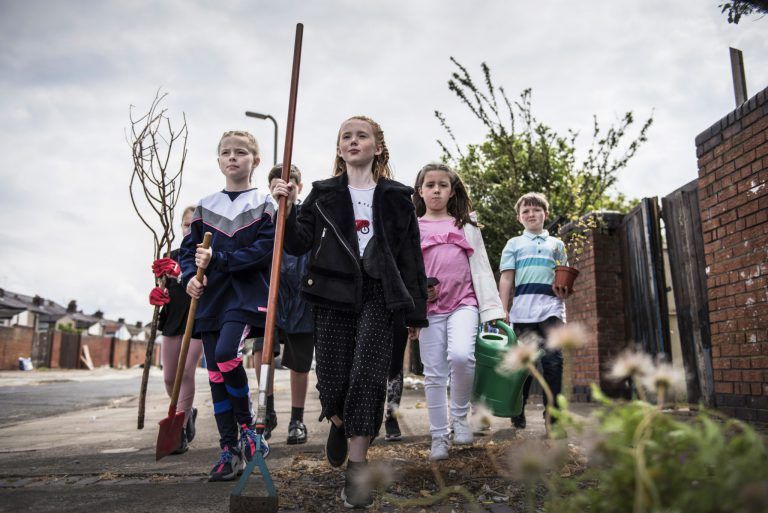
by Iceland
•
26 February 2021
Since launching in summer 2019 with support from HRH The Duchess of Cambridge, the campaign has inspired almost 15,000 children to sign up as Backyard Nature Guardians, pledging to care for nature in their own neighbourhoods. Children from all over the UK have spent over 750,000 hours protecting nature in their communities, including taking part in Backyard Nature’s seasonal ‘missions’ to ‘Save the Bees’ and ‘Love Bugs’. With help from Iceland’s 30,000 store colleagues, Backyard Nature has seen 15 million wildflower seeds planted by children, 337,000 bug hotels given away to help protect the country’s insects, and a winter ‘Feed the Birds’ mission supported by environmental charities. A focus on activities to support children in lockdown included a ‘Wild Wales’ mission, providing resources in Welsh as well as English. Backyard Nature was developed in partnership with, and is run by Semble, a social enterprise that connects businesses with grassroots communities to drive positive change, and the campaign has the support of 22 charities. The campaign was inspired by the Eco Emeralds, a group of young environmentalists from All Saints Catholic Primary School in Anfield, Liverpool, whose story featured prominently in the 2020 ITV documentary Prince William: A Planet For us All, which has since been broadcast on Australian TV and across the US on the Discovery Channel. Backyard Nature is also supported through media partnerships with Global Radio and Nat Geo Kids magazine. Richard Walker, Managing Director of Iceland and IFCF Trustee, said: “The impact of Backyard Nature has been extraordinary, helping thousands of children to connect with nature on their own doorstep. It has inspired global interest and I am immensely proud that the support of IFCF as founding partner means that this campaign can now go from strength to strength.” To find out more about Backyard Nature visit www.backyardnature.org

by Iceland
•
25 February 2021
Across the globe, peatlands occupy only 3% of the world’s land area but store over 30% of global carbon, making them essential in the fight against climate change. Restoration of these essential habitats not only utilises nature’s ability to tackle the climate crisis, but provides places to live for rare wildlife. In Wales there is a huge 90,000 hectares of peat soil, but the majority are in poor condition. This is the result of mismanagement such as draining of soils for agriculture and extraction of peat for gardening. This destruction of peatland not only results in a lack of ability to lock in carbon, but it means that peat is a source of greenhouse gas emissions. According to Wildlife Trusts Wales, Welsh peat currently releases around 550,000 tonnes of carbon into the atmosphere every year. If this were to continue and the carbon in peatlands in Wales was lost to the atmosphere, it would be the equivalent to 15 years’ worth of Wales’s total CO2 emissions. The charity wants to reverse this trend by developing projects to restore all Welsh peatlands by 2030, with measures to achieve restoration in place by 2025 or before. Iceland Foods Charitable Foundation (IFCF) will play a pivotal role in this ambitious move by investing now to realise this vision. This means that carbon will be locked-up rather than being released, water will be clean due to filtration, endangered wildlife will be conserved, and Welsh homes will be protected from flood risk. Richard Walker, Managing Director of Iceland and IFCF Trustee, said: “Welsh peatlands are such an invaluable part of our environment, providing essential habitats for amazing wildlife across the country and locking away massive amounts of carbon. By funding the restoration of this crucial part of our ecosystem, we are supporting the Wildlife Trust’s vision to lock up more carbon, restore nature, filter water and reduce flood risks for local communities. I am delighted that by returning the peatlands to their former glory, it will help will benefit people and the environment immediately and in the future.”
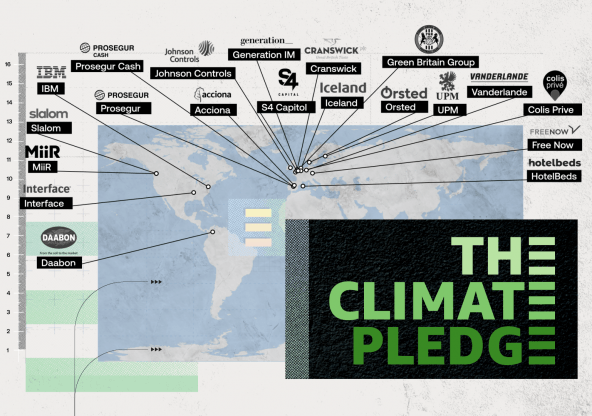
by Iceland
•
17 February 2021
Signatories to the pledge agree to measure and report on greenhouse gas emissions; put in place decarbonisation strategies in line with the Paris agreement; and neutralise any remaining emissions with additional, socially beneficial offsets to achieve net zero annual carbon emissions. Iceland is one of 20 new signatories to the pledge, that represent diverse economic sectors, ranging from energy to agricultural and financial services. Each company is implementing science-based, high-impact changes to its business to help decarbonise the value chain, including innovating in circular economy, deploying clean energy solutions, and mobilising supply chains to reach net-zero. Jeff Bezos, Amazon founder and CEO said “Amazon co-founded The Climate Pledge in 2019 to encourage companies to reach the goals of the Paris Agreement 10 years early, and we’re seeing incredible momentum behind the pledge with 53 companies from 18 industries across 12 countries already joining. Together, we can use our collective scale to help decarbonize the economy and preserve Earth for future generations.” Richard Walker, Iceland Managing Director said “We believe that every business has a moral responsibility to take ambitious action to address these major and urgent sustainability issues; it is also a commercial imperative for any business that hopes to have a future. We are delighted to be the first food retailer to join The Climate Pledge and commit to be net-zero carbon by 2040.” Find out more about the Climate Pledge at https://www.theclimatepledge.com/
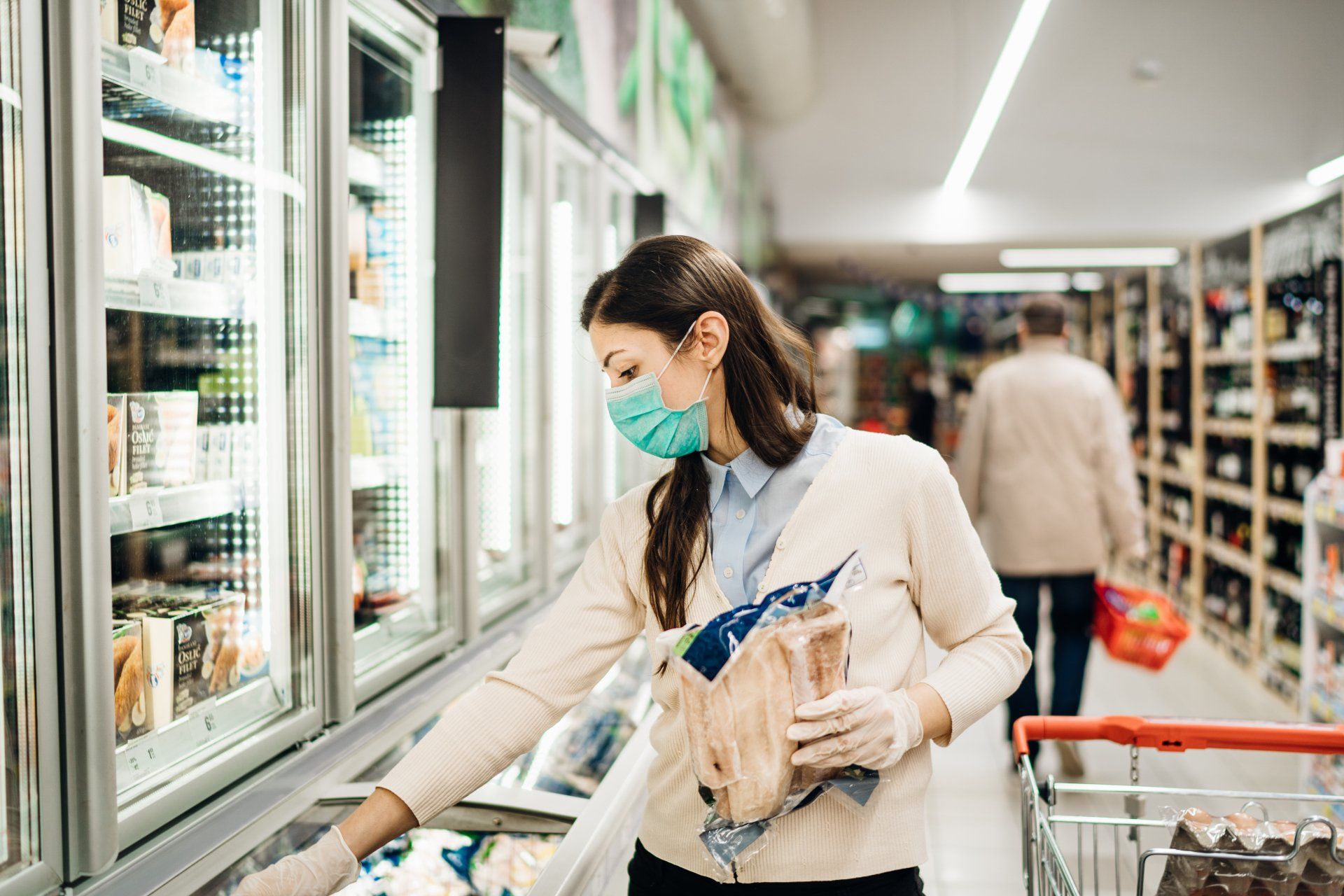
by Stuart Tiedeman
•
21 January 2021
In 2021, the pandemic is still prevalent as well as the end of the Brexit transition period , adding more pressure to the UK economy. Brexit and the pandemic have prompted consumers to spend more cautiously, looking for alternatives to fill their needs. Iceland Foods has helped customers during these difficult times in many ways. We will look at the reason behind shopper shifts towards Iceland and how the retailer has made a real impact during 2020. We will discuss the continuous adaption and adjustments the retailer is making to keep up with demand, ethics and affordability. Economic consequences of COVID-19 According to the Resolution Foundation , 54% of adults in families who fell under the ‘lowest paid’ category took greater loans from March to June to pay for everyday items, such as food and housing. The survey conducted found that working age adults in the UK were affected greatly by the coronavirus crisis, which has been detrimental to many jobs, incomes and living situations, especially those in the lowest income bracket. Families had less money to spend, and as a consequence, are looking at alternative ways to meet their needs. Shoppers have increased the purchase of frozen food , as it is more affordable and lasts longer. This has benefited Iceland, as the frozen food retailer increased by 22% , making £1.7 billion from April to September 2020. How have shopper behaviours shifted toward Iceland? Iceland is a UK leader in frozen food, running over 950 stores across the country . Their online shopping service has won multiple awards. They have a 20+ year reputation for being a family-friendly, cheap and cheerful store for weekly shopping that meets the daily needs for fresh, chilled, frozen food and groceries. There are different ways Iceland has been able to help customers during this difficult time. One of the services include home delivery of in-store purchases over £25. Selling quality food at an affordable price is a priority for the retailer. They have also taken part in the Healthy Start Voucher initiative, providing individuals and families with free frozen vegetables in its stores across England, Wales and Northern Ireland, which is available until the end March. In Scotland, the same offer falls under Best Start Foods card. By participating in this initiative, Iceland can offer families with nutritious food at a good value. Iceland’s sustainability and ethics Consumers have become increasingly more concerned about sustainable living and ethical practices, according to UK Food Trend Report in 2019 . The report showed that 75% of 1,000 UK shoppers surveyed, would like to see supermarkets providing only ethical and sustainable groceries in their shops. Iceland has taken these concerns into consideration, working hard to live up to the principles of becoming more sustainable and sourcing ethical products. In January 2020 , Iceland was the first store in the UK to launch a trial to reduce up to 93% of plastic packaging . This gave shoppers options in buying 38 different fruit of vegetables plastic-free or reduced plastic content packaging. In response of consumer awareness, this trial is expected to reduce seven tonnes of plastic. It is important to add that Iceland was the first retailer to commit to remove plastic by 2023 on its own label. In May 2020 , Iceland announced food waste had been reduced by up to 2,500 tonnes by distributing surplus food given to store colleagues in around 1,000 stores, donating it to local communities, and converting it into animal feed. Through community networks, 157.8 tonnes of surplus food was given to people in need under other initiatives. Iceland reduced their food waste by up to 2,000 tonnes in 2020. Iceland is taking extra steps, not only reducing carbon from operations, but inviting the government and other businesses to join forces in taking action in the face of the climate and environmental crisis we are all living in. Another important achievement was the commitment to remove palm oil from their own label products. Palm oil is one of the main causes of deforestation and a driver for extinction in species such as the orangutan. While some non-Iceland products might contain palm oil, they prefer other supply chains to have more sustainable sources, stopping further deforestation. Adjusting to shopper changes While 2020 has proven to be a challenging year, Iceland is committed in creating and supporting plans to increase their environmental responsibility as well as helping their shoppers through the pandemic. This has been done by continuously caring, not only about their customers’ financial needs, but also offering them the best quality products. Iceland’s goal to become a carbon neutral business by 2023 has displayed that they are concerned about the planet, and are falling in line with the increasing changes in the ethics of shoppers. The retailer has proven that it is possible to keep profits high while helping their customers, the community and the environment. Interested in implementing a campaign to reach Iceland shoppers? Request a proposal or send an email to hello@IcelandMedia.co.uk .
Powerful media inventory to amplify your existing JBPs...
Create a campaign brief and we'll respond within 24 hours with a recommendation & commercial proposal...
CONTACT US
Iceland Supplier Optimisation Team
(provided by rmi)
7 Bell Yard
Strand
London
WC2A 2JR
(provided by rmi)
7 Bell Yard
Strand
London
WC2A 2JR
020 8962 2300
hello@IcelandMedia.co.uk
USEFUL LINKS
STAY INFORMED
Subscribe
Thank you for contacting us.
We will get back to you as soon as possible
We will get back to you as soon as possible
Oops, there was an error sending your message.
Please try again later
Please try again later

